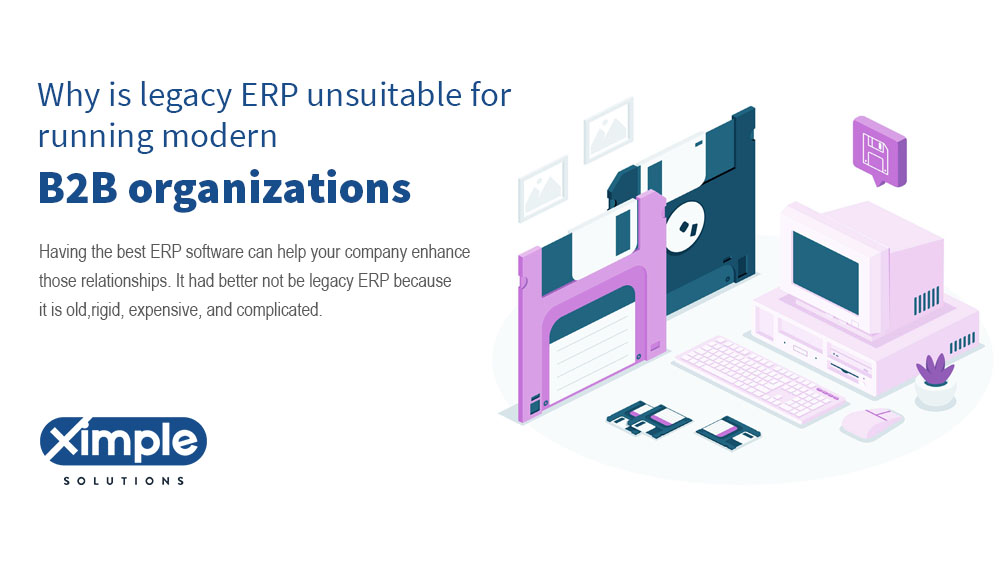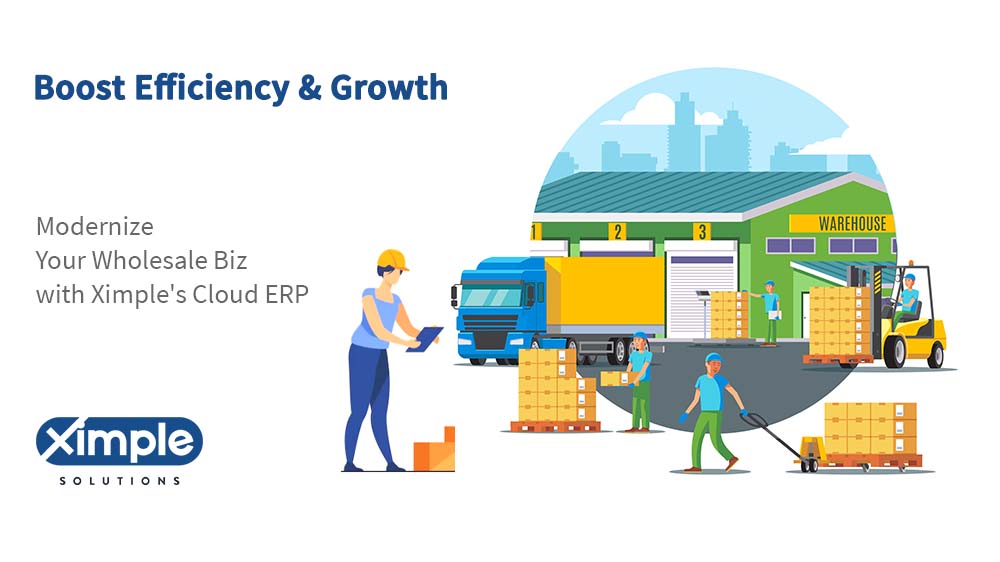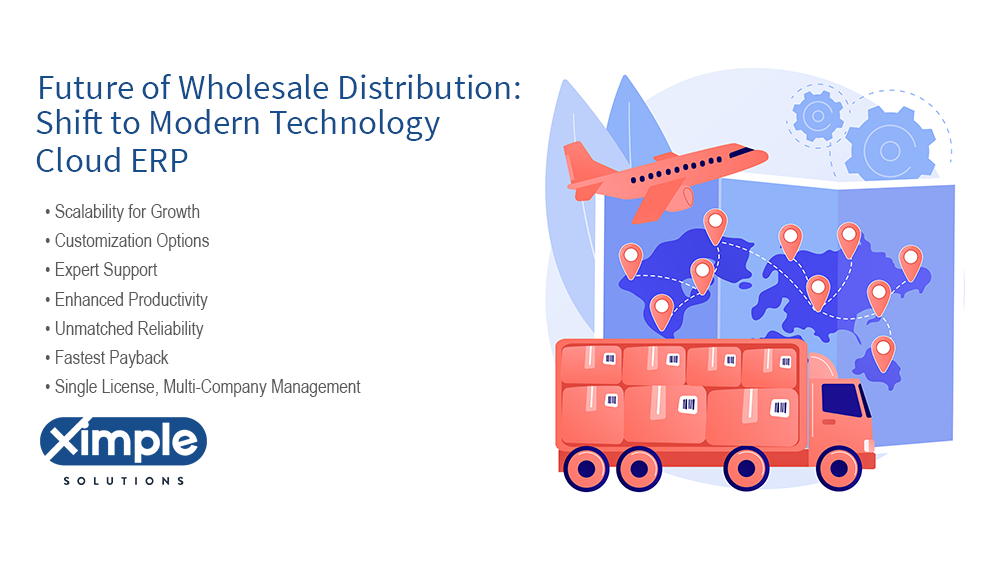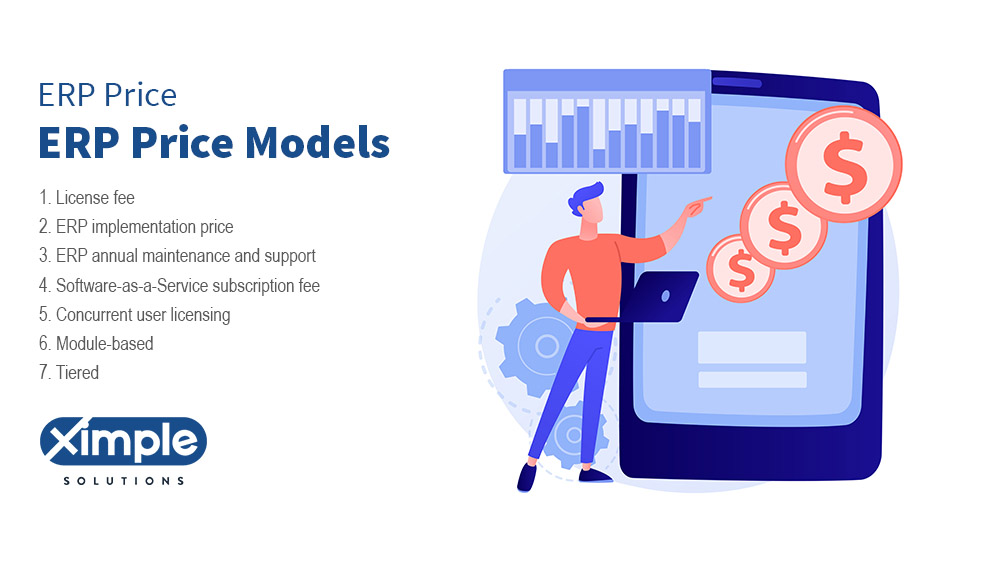What is Legacy ERP? Why need to Upgrade?

This article is relevant for B2B businesses that are currently using a legacy ERP system and are looking to understand why it may not be suitable for their modern customer expectations. It is also relevant for those who are in the market for an alternative cloud-based ERP system and are interested in learning about Ximple Solution’s wholesale distributor ERP and its features.

Enterprise Resource Planning (ERP) software is a crucial business management tool. It comes in two forms, including legacy and cloud ERP. Legacy is the oldest ERP type, while the cloud is the modern kind. We will explain why legacy ERP solutions cannot manage B2B activities in our article today. We will describe the features they lack to meet B2B customers’ expectations. Moreover, we will introduce Ximple Solutions wholesale distributors ERP, compare it to competitor ERPs, and tell you why it makes the best legacy alternative.
Table of Contents
Why is legacy ERP unsuitable for running modern B2B organizations?
A B2B business must focus on its relationship with customers and value-added partners. Having the best ERP software can help your company enhance those relationships. It had better not be legacy ERP because it is old, rigid, expensive, and complicated. To compete effectively with your B2B rivals, do away with legacy ERP and embrace cloud ERP. Here are the reasons why legacy ERP can no longer meet the needs of modern B2B customers.
- Inflexible and complex – Legacy is on-premise ERPs, making them rigid and complicated. Customizing legacy ERP is hard. If you try it, you can trigger issues in other business systems. Inflexibility, rigidity, and complexity make legacy ERPs inapt when looking for growth opportunities. A more robust and extensible cloud ERP system is more reliable when moving to new markets or developing new product lines.
- Lacks scalability – The best ERP system for distributors should help them respond quickly to change. Unfortunately, legacy systems are not scalable. They will not help you take advantage of new opportunities before your rivals see them. Also, they will not let you solve customer complaints, respond to shifting demand patterns, or make decisions promptly and accurately.
- Outdated and immobile – Forward-looking B2B organizations recognize their employees’ role in improving sales, revenue, and customer relations. Hence, they capitalize on modern technologies to help their workers become as productive as possible. Those still using legacy ERP put their employees through the torture of working with an outdated system. Some of these workers are millennials who cannot stand obsolete ERPs. They instead want a system they can access from anywhere, anytime. Legacy ERPs are office-based. So, they are immobile and impossible to access from anywhere.
- Complicates legal compliance – B2B distributors must comply with stricter regulations than before. Those still using legacy ERP systems cannot meet the ever-changing government policies for businesses. An outdated enterprise resource planning tool cannot accommodate unceasing policy changes. As legacy ERPs use Excel spreadsheets and manual data entry methods, they create room for error. Inaccurate data is unreliable and can lead to compliance issues. Besides, correcting mistakes can be expensive.
- Lacks crucial ERP features and benefits – Legacy ERP cannot meet the demands of modern B2B companies because they lack essential features found in cloud ERP. Legacy systems are more expensive to maintain because they run on in-house servers. On the other hand, cloud systems are more flexible, adaptable, and cheaper to use because the vendors incur maintenance costs. Cloud ERP systems provide extra features that help customers achieve all their goals. With the traditional legacy ERPs, you are stuck with an inextensible system with no agility. It is easier to take advantage of business intelligence, artificial intelligence, robust encryption and security, and other up-to-date features with cloud ERP software. You can afford to expand your B2B organization beyond your national borders.
Why Ximple Solutions Wholesale Distributor ERP is the best alternative
If you run a legacy ERP, you should not hesitate to change it. It would be best to substitute it for a cloud ERP at once. Ximple Solutions is among the best legacy ERP alternatives. First, it is ideal for wholesale distributors. If you are a distributor, Ximple ERP is the best software for managing your supply chain, regardless of size.
Ximple Solutions ERP covers all areas of distribution business management. As cloud software, Ximple ERP produces accurate live data for everyone’s perusal. Hence, it promotes confidence and promptness when making managerial decisions. A highly customizable cloud ERP system, Ximple Solutions works better than its rivals.
As a result, Ximple wholesale distributor ERP can help you meet B2B customer demands and solve their complaints in real time. It solves all legacy ERP problems. Below, we will show how Ximple Solutions ERP compares with its competitors’ ERPs based on the following characteristics.
- Scalable– Ximple ERP for wholesale distributors is scalable. Although its competitors’ ERPs are also scalable, Ximple Solutions’ software is better because it is highly agile. In contrast, its competitors provide structured ERPs. Scalable but super agile ERPs offer several modules, advanced reporting capabilities, flexible workflows, ease of adding users, and web-based platforms for mobile users.
- Adaptable – Ximple ERP system entails microservice/APIs for internal and external integration. Offering user-friendly template models, Ximple Solutions ERP is highly flexible and reliable. It will accommodate your business requirements even if they are complicated. Whether you own a multinational organization with several teams or a small enterprise with one premise, you can adapt Ximple ERP to your requirements. On the other hand, competitor software options are static and not easy to customize according to your needs.
- Visibility – Ximple wholesale distribution ERP provides real-time data. In contrast, competitors’ ERPs provide batch data. Real-time data is more reliable because the processing occurs right after capturing information. Batch data is less reliable because processing starts only after gathering adequate information. The system only processes batches of data rather than small pieces of it. Ximple ERP provides live visibility from one end of the supply chain to the other.
- Process orientation – The best ERP for distributors should be customer-oriented. After all, no business can succeed without customers. Ximple ERP focuses on the customers’ needs, allowing you to react to their complaints and requirements on time. On the other hand, its rivals’ software systems emphasize back-office activities. Although back-office activities like record maintenance, legal compliance, settlements, IT services, and accounting are vital, they should not come before client-facing activities. Customers will trust your brand more if they receive top-notch services and attention. That’s why an ERP with a robust and focused CRM module is more reliable.
- Configurable- Ximple wholesale distributor ERP is a dynamic order orchestration platform. Due to its configurable and versatile features, Ximple makes the sourcing and order fulfillment process simpler. Its order management solutions cover all the stages, including sourcing, inventory management, customer service, order alterations, sale closure, shipping, and returns. On the other hand, Ximple Solutions competitors provide a system of record that may not meet all business environment constraints.
- Channel support – Ximple ERP solution provides an Omni-channel system while its competitors offer limited channel support. Omnichannel customer service is the best choice because it can ensure consistently high customer service standards. It is a network of integrated devices that enable flawless communication no matter the channel. An omnichannel customer support service relies on various advertising tools, including web push notifications, social media ads, SMS marketing, and email marketing. Ximple ERP system is compatible with many languages and languages. Therefore, it can help your business meet international customers’ requirements. Tax requirements compliance and other international barriers to doing business are easier to overcome with Ximple Solutions ERP.
Conclusion
In conclusion, legacy ERP systems are outdated and unsuitable for modern B2B organizations. They lack the flexibility, scalability, mobility, compliance, and crucial features needed to meet today’s B2B customer expectations. Cloud ERP systems like Ximple Solutions Wholesale Distributor ERP provide a better alternative to legacy ERP. Ximple Solutions ERP is highly customizable, scalable, and adaptable, and provides real-time data and process orientation. It also offers configurable order orchestration platforms and omnichannel support, making it the best option for wholesale distributors. Moving to Ximple Solutions ERP from legacy ERP can help businesses meet B2B customer demands and improve their supply chain management.
Related topics
- How to Select The Right ERP System?
- What is Future of Cloud ERP?
- What is Cloud Based ERP Systems and How does it Works?


